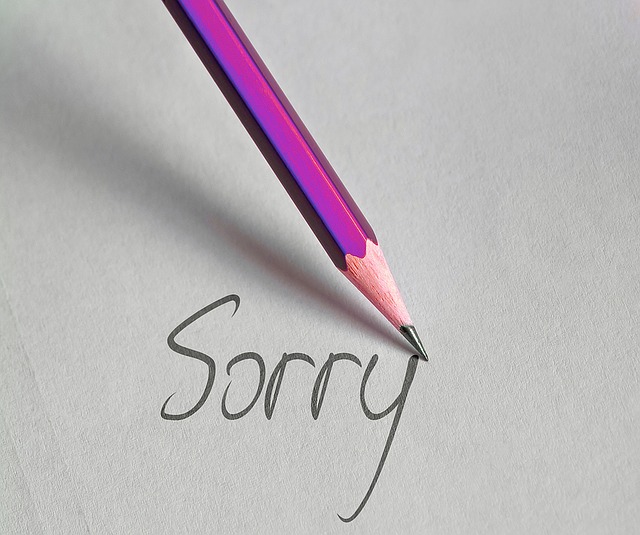No one has made it through their entire career without a couple mistakes, and more than a few of those mistakes are going to affect other people. When that happens we are forced to do the thing we most dread- apologize. No one loves apologizing, but people who don’t know how to do it love it least. The most painful thing you can do is apologize badly, and then later end up apologizing for your apology! Today we are going to look at how we can avoid bad apologies by using a simple formula.
The ideal apology expresses 6 different sentiments, which is why “sorry” doesn’t cut it.
Express regret- This is where the words “I’m sorry” are useful, they are the words most readily accepted as an expression of regret. They are not, however, your whole apology- merely the beginning.
Explain what went wrong- When you do this try not to use it as a platform to make excuses. Your goal is to demystify the situation, not to underplay any of the issues. Do your best to talk about yourself in this situation. One of your co-workers might be equally to blame, but they have no place in your apology. Keep the conversation to what went wrong on your end.
Take responsibility- Once you explain what happened, own the parts of it that you created. This is the necessary follow-up to the explanation of what went wrong. However, if there were other people involved, you do not (and should not) have to take responsibility for their actions. Your apology is about you, and while you shouldn’t throw anyone else under the bus while apologizing, you also shouldn’t take on more blame than you deserve.
Repent- Now that you have explained what went wrong and how you understand that you helped cause the issue, you repent. You reiterate the fact that you regret the situation, but now you are doing it from a place where everyone understands that you understand what went wrong- which adds a little more weight to the claim.
Offer to repair the damage- This (along with assuming responsibility) is the most important aspect of any apology. Without this aspect your apology seems empty or impotent. In order to fully apologize you need to be willing to go back and fix everything you broke. If you don’t do that, what good was your apology? This is where you put your money where your mouth is, if you are truly sorry you will have no issue with fixing the damage.
Request forgiveness- This last piece is optional and should only be attempted if the other five aspects have been completed. If you have gone through the first five motions than a request for forgiveness should go over well- if you haven’t than you may end up making the situation worse! Remember that this one is last for a reason.
Apologies can be hard- but they are much harder if you don’t know what you are doing. If you stick to this plan not only will you find it easier to apologize- but your apologies will be more effective as well!

